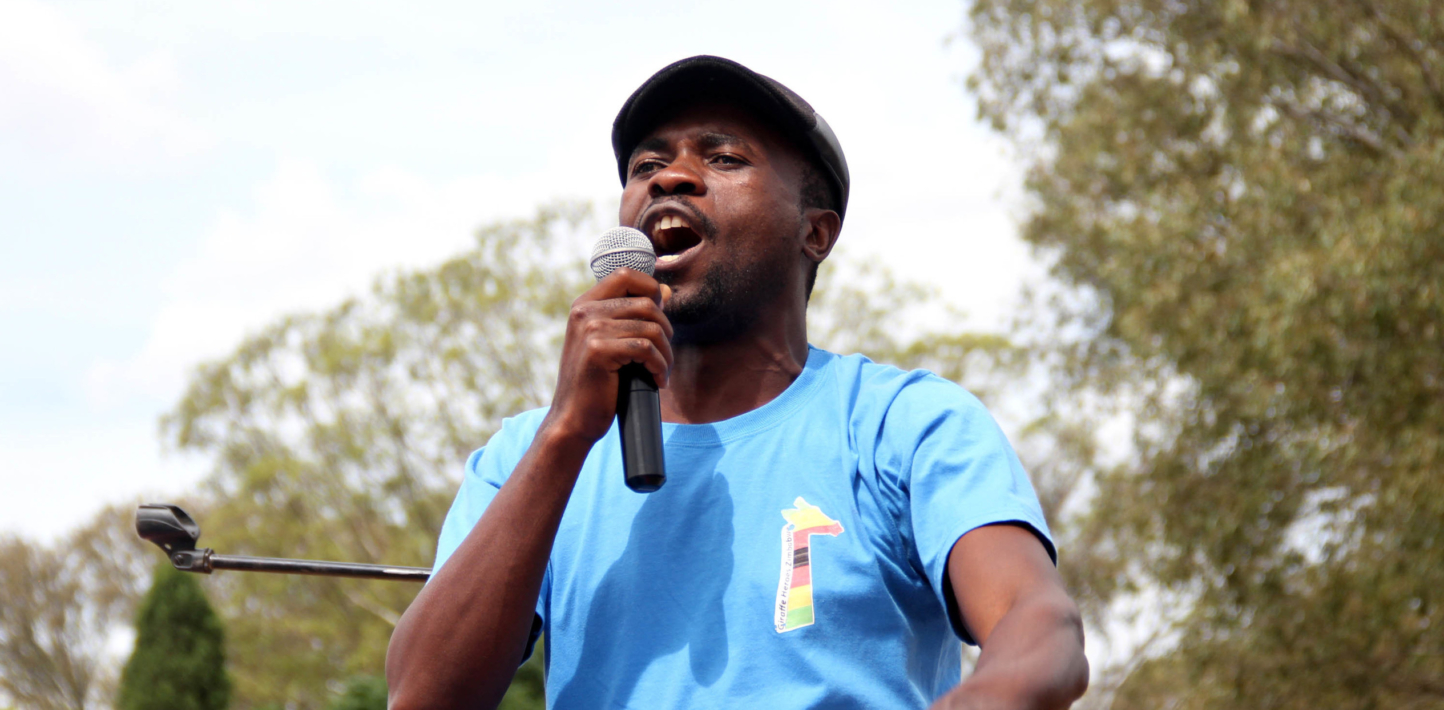By Vongai Chikwanda, Southern Africa Campaigner for Amnesty International.
“All he desired was a peaceful nation, where people are free to express themselves and people are protected by the state.”
The authorities felt that Itai was a threat……so they decided to remove him from the picture
Sheffra Dzamara, wife of Itai Dzamara
These are the words of Sheffra Dzamara, the wife of Zimbabwean pro-democracy activist Itai Dzamara, speaking to Amnesty International recently and describing the pain of endlessly waiting for the return of her husband who vanished without a trace on 9 March 2015.
Itai was known for his activism and for campaigning to improve accountability in Zimbabwe. He had also called for President Robert Mugabe, who has been in power for more than three decades, to step down.
In addition to his activism, Itai is a son, a husband, a father to two children, a sibling and a friend. He was taken away from his family and loved ones on this fateful day one year ago and he has not been seen since. On the morning that he was disappeared, Itai went to get a haircut at a local barbershop in Harare. For him it was just a normal day and he wanted to look smart as he went about his daily business.
Witnesses say five unidentified men driving a white truck picked him up and arrested him on allegations of stock theft. There have been no leads on his whereabouts in spite of a court order instructing the police to periodically provide information on their efforts to locate him. The search mission remains a frustrating process for his family and lawyers.
The mysterious nature of his disappearance has created serious suspicion among the public and his family members. His wife, Sheffra, told us: “The authorities felt that Itai was a threat……so they decided to remove him from the picture.” But she remains hopeful that those who took him will release him and maybe her questions will be answered one day.
The circumstances around his disappearance are sadly all too familiar. Many other activists have been abducted in a similar fashion….
Vongai Chikwanda, Amnesty International's campaigner for Southern Africa
Itai’s disappearance happened in the context of a state that has a proven track record of not tolerating dissenting views. Security forces routinely use repressive laws such as the Public Order and Security Act to prevent people from carrying out peaceful protests and voicing their criticism. Zimbabwe is a dangerous country in which to openly oppose the ruling party, let alone the head of state.
But Itai’s protest was not far-fetched. He simply wanted a country where every law abiding Zimbabwean could just be themselves. In his own words: “There are laws, including our own constitution, which require the government to protect the citizens. We want those laws to be followed. That’s our desire.” He wanted to see people able to freely express themselves and peacefully protest without fear of reprisals. For that he endured brutal attacks himself.
The circumstances around his disappearance are sadly all too familiar. Many other activists have been abducted in a similar fashion by unknown perpetrators who later turned out to be state security agents. Zimbabwe has an ugly track record of unresolved cases of men and women who have disappeared in suspicious circumstances post-independence; Rashiwe Guzha, Paul Chizuze and Patrick Nabanyana to name but a few.
Enforced disappearance is a crime under international law. It is defined as the arrest or detention of a person by state agents or those acting with state authorization, support, or acquiescence, followed by a refusal to acknowledge the whereabouts of that person, or reveal his or her fate. In Zimbabwe, enforced disappearance is a well-practised technique used to target human rights defenders and their relatives, political opponents and inconvenient witnesses. It is a tool of control and intimidation that affects society as a whole. Amnesty International believes that no circumstance whatsoever can justify an enforced disappearance.
Someone was certainly uncomfortable with the manner in which Itai Dzamara was exercising his right to freedom of expression – a right guaranteed internationally, as well as under Zimbabwe’s own constitution. People don’t just vanish into thin air and his family believe that someone did not want Itai to continue with his activism.
His family deserves to know the truth and find closure on this matter. If the security forces genuinely do not know where Itai is being held, then they have an obligation to investigate his whereabouts and resolve the crime. To get at the truth of the matter, President Robert Mugabe must set up an independent judge led Commission of Inquiry into his disappearance with the powers to subpoena witnesses. The findings of the Commission of Inquiry must be made public and those implicated must be brought to justice in a fair trial.
Until this is done, Amnesty International will stand with his wife, family and friends and continue to ask: where is Itai Dzamara?


